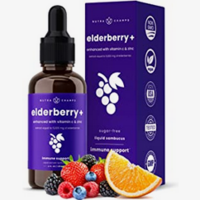When it comes to nutrition, everyone, and their mother has opinions about what you should and should not be putting in your mouth. Add the prospects of pregnancy into the mix, and all of those opinions get even louder.
No matter where you fall on the spectrum of diet preferences — from paleo to vegan, from intermittent fasting to constant grazing — adding plants to your plate is one piece of advice that everyone can get on board with.
What are the health benefits of eating a plant-based diet?
A plant-based diet, just as the name conveys, is about eating more plant foods: fruits, vegetables, whole grains, legumes, nuts and seeds, etc. Particularly for women, the benefits of adding more plants to your plate are many, including:
Reduced risk of chronic conditions
Research shows a strong correlation between eating more plants and reduced risk of chronic diseases such as heart disease (the #1 killer of women in the US), stroke, type 2 diabetes, and some types of cancer.
Improved gut health
Plant-based foods typically have a lot of fiber (as long as they’re not refined - e.g. when you make whole wheat into white flour for pastries, you strip away the fiber), and many forms of fiber provide food for the beneficial bacteria camping out in your GI tract. A healthy gut microbiome is associated with myriad benefits from reduced inflammation, to better utilization of nutrients from your food, to better immune defenses.
Hormone health
The benefits from plants for your hormones harken back to fiber. The abundance of fiber from plants is helpful for binding toxins, like excess estrogens, in your stool, helping you excrete what you don’t need.
Beyond fiber, many plant-based foods like beans, soy, legumes, and flax seeds have phytoestrogens, which are weak estrogen-like compounds. There is a decent amount of evidence suggesting that phytoestrogenic plant foods, like soy, can advantageously modulate estrogen levels. According to Harvard School of Public Health, for postmenopausal women, soy can provide much-needed estrogen, and for premenopausal women, soy may help decrease excess estrogen levels.
Skin health
Most fruits, vegetables, nuts, and seeds provide antioxidants that can help protect your skin from the calamities of daily living.
Reduced risk of ovulatory infertility
Eating ample fruits and vegetables has been shown to help reduce the risk of ovulatory issues in women (and support healthy sperm).
Lower inflammation
The antioxidants and phytonutrients in plant-based foods are powerful anti-inflammatories.
It’s important to note that even plant-based eating is not inherently healthful and nourishing if not done carefully. For instance, breakfast cereal and spaghetti are plant-based, typically made from wheat. However, if you live on refined grains, even if they’re technically plants, you don’t get all of the fiber, vitamins, minerals, and antioxidants that you need to reap the health benefits listed above.
Can I eat eggs or meat on a plant-based diet?
What I love about the concept of plant-based eating, is the emphasis on more vegetables, and more whole foods. From my perspective as a dietitian, you don't have to cut ALL animal foods. You can satisfy your health goals by piling your plate high with vegetables, without having to go 100% vegan.
In fact, there are a number of nutrients — think choline, vitamin B12, and more — that are essential to hormone and reproductive health, and are really hard to get enough of, without some animal foods in the mix. Even omnivores who come to work with me tend to be low in many of these vital nutrients. This is why, in my practice, I do recommend including nutrient-dense animal foods, if well-tolerated and well-sourced, like pastured eggs, wild-caught fish, and organic, full-fat yogurt.
Regardless of whether you choose to include some animal foods or not, the emphasis is still on getting as many vegetables in as possible. I recommend the following targets:
-
Aim for vegetables to comprise at least 50% of each meal; and
-
Aim for 8-10 servings of fruits and vegetables per day. (Note that 1 serving is ½ a cup cooked and 1 cup raw.)
This may seem overwhelming, which is why Rescripted has teamed up with Daily Harvest to create a 30-day menu of plant-rich meals that make it easy to incorporate more fruits and veggies into your diet without breaking the bank. Use code RESCRIPTED to get $50 off your first box!
With plant-based meals, will I be getting enough protein?
Wondering if you can get enough protein on a plant-based diet? The answer is yes! Do you have to be careful and conscientious about it? Most definitely. But it is certainly possible to meet your protein requirements. Get started with Meatless Mondays and swap out your animal proteins for plant-based options like edamame, lentils, quinoa, tofu, and tempeh.
Despite all the (loud) voices to the contrary, nutrition is not one-size-fits-all. I hope you take this knowledge of how eating plants may be beneficial and make it work for your body and your life. Then shut out those unsolicited opinions and you do you, with your head held high.
Anna Bohnengel, MS, RDN, LD is a Registered Dietitian helping women take control of their fertility. Learn more on her website here, and find her on Instagram here.





















%20Health%20&%20Household.png)
%20-%20Supports%20Overall%20Health%20with%20Licorice%20Root%20Lemongrass%20and%20Jasmine%20-%20Contains%20Caffeine%20-%2064%20Organic%20Green%20Tea%20Bags%20Grocery%20&%20Gourmet%20Food.png)



